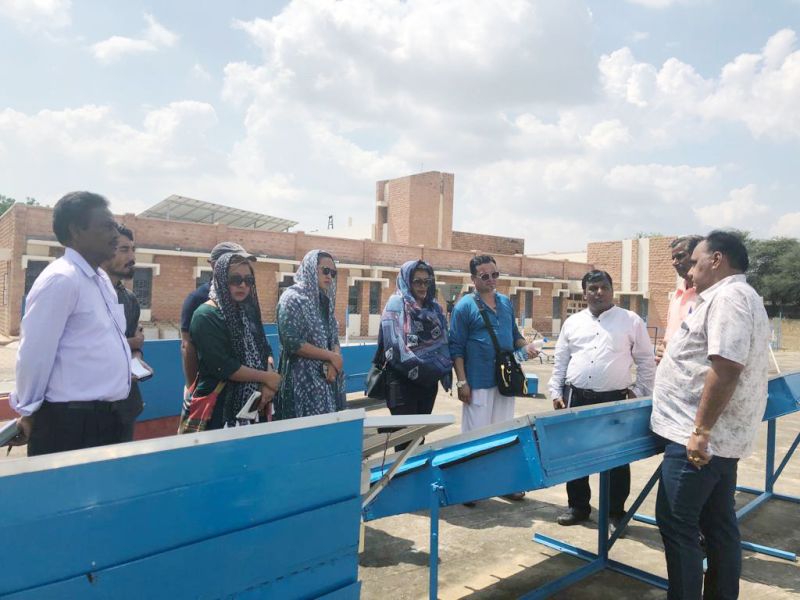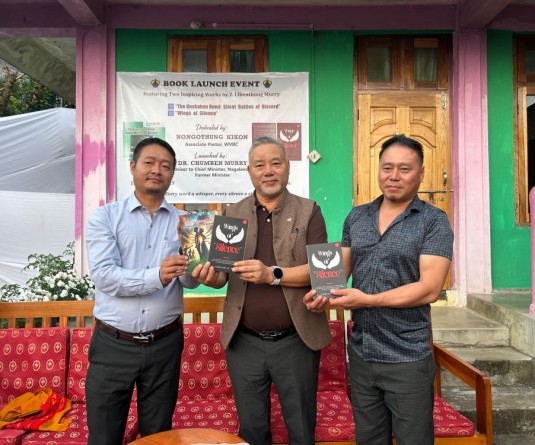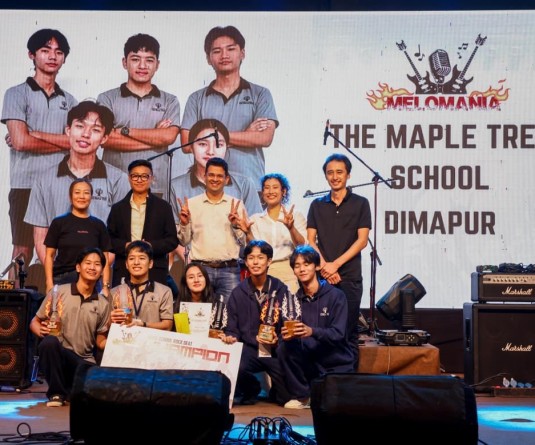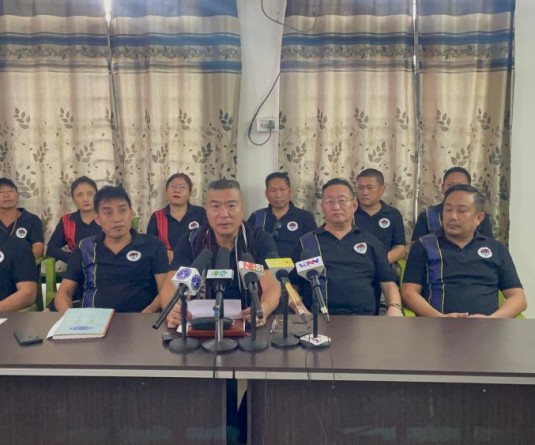CAZRI – developing sustainable farming in arid ecosystem

Media team from Nagaland during a field visit to the ICAR-CAZRI, Jodhpur on September 24. (Morung Photo)
Morung Express News
Jaisalmer | September 24
Given the harsh climatic conditions and shortage of water in the land of desert with no fertile lands in the western part of Rajasthan, the Central Arid Zone Research Institute (CAZRI) has done commendable research and development on sustainable farming in the arid ecosystem.
The institute has done research in combating desertification through sand dune stabilisation, developed integrated farming system for suitability, new technologies, and new varieties of crops, solar devices and efficient rainwater management.
After years of research and development, varieties of climatic resilient crops, shrubs and trees are being cultivated by the farmers for fuel, fodder and economic products.
In an interaction with the team of journalists from Nagaland, Dr. RK Kaul, Principal Scientist and Head of Division CAZRI said after 30-40 years, it has been able to reduced 99, 000 Ha of soil degradation.
With its policy towards constant efforts for improvement in quality management system, utilisation of optimum natural and human resources, technological advancement and better synergies, he stated that over the years, along with its research and studies, resilient farmers have also been developed who are willing to face any difficulties both natural and manmade.
As water is depleting, Kaul said, improved designs of tradition rainwater harvesting structures have been developed to maximize collection of rain water.
During the field visit, it was learnt how the institute has developed and fabricated several solar energy based devices for use in agriculture to increase high quality production for its farmers, and also generating electricity using photovoltaic panels, harvesting water and cultivating crops simultaneously on a single unit of land.
Kaul also stated that it is trying to give the best to its farmers through developing new technologies, new varieties of crops and also by organising trainings, field days, farmer fairs, scientist-farmer interaction meetings and exhibitions at periodic interval to enrich the knowledge of farmers.
These events, he said have helped farmers in rapid determination of improved technologies over the years, which are evaluated and fine-tuned through on-farm research, trail and verifications.






